Plant Ag Persons Attend The Great Lakes Plant Breeding Initiative Conference 2015
Overview:
The Great Lakes Plant Breeding Initiative Conference 2015,
Ohio State University
Article by Finlay A.A. Small, MSc candidate.
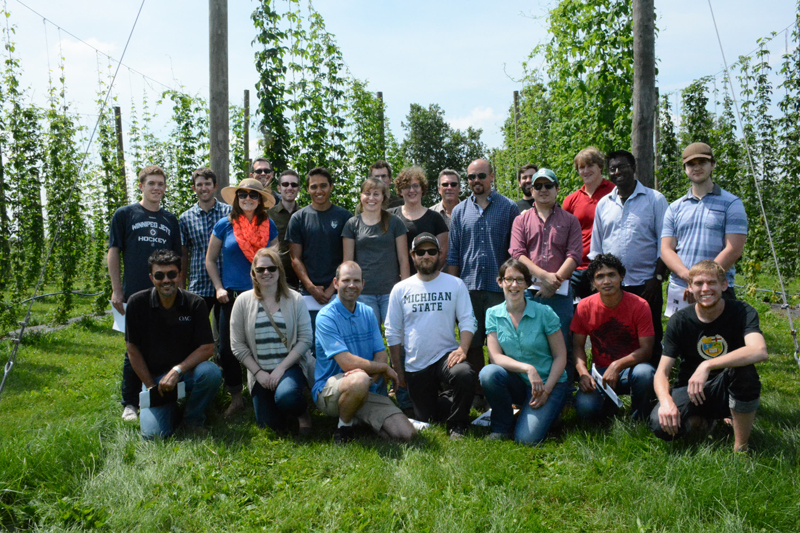
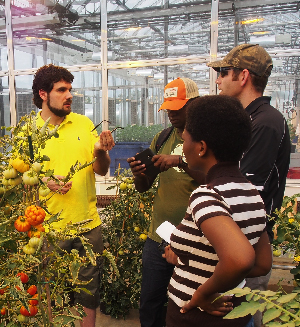 A group of 12 graduate students and 3 professors from The University of Guelph visited Ohio State University (OSU), Wooster campus, from June 23-26 for a conference of The Great Lakes Plant Breeding Initiative (GLPBI).
A group of 12 graduate students and 3 professors from The University of Guelph visited Ohio State University (OSU), Wooster campus, from June 23-26 for a conference of The Great Lakes Plant Breeding Initiative (GLPBI).
The GLPBI is an initiative to promote knowledge sharing and collaboration between plant breeders and students in the great lakes region. The GLPBI began as a joint venture between The University of Guelph and Cornell University in 2008. Since its inception, the GLPBI has grown to include Ohio State University, University of Wisconsin-Madison, and Michigan State University.
Faculty members Dr. Istvan Rajcan, Dr. Alireza Navabi, and Dr. Lewis Lukens, joined Plant Breeding & Genetics graduate students Colbey Templeman, Edward MacDonell, Robert Bruce, Fawn Turner, Adam Carter, Torin Boyle, Jen Wilker, Andrew Holtrop, Finlay Small, Alex Whittal, Kamal Khadka, and Max Hargreaves. Students from Cornell University, Michigan State University, and OSU Columbus Campus attended the GLPBI conference.
The GLPBI conference took place at the Wooster campus of OSU. We arrived on Wednesday evening for a short introduction presentation and dinner in The Secrest Arboretum Center.
On Thursday morning, researchers from The Van der Knaap Lab presented posters about their research on the genetics of tomato fruit morphology and then walked us through their greenhouse.
Dr. Margaret Redinbaugh presented field trials of virus resistance in maize. Dr. David Francis, from The Tomato Genetics and Breeding Program, presented field trials of tomato and Ethiopian eggplant. Rains interrupted our schedule so we returned to The Secrest Arboretum Center for presentations. Dr. Leah McHale, of The McHale Lab, gave a presentation about the soybean breeding program and the development of black soybean cultivars for Ohio and Midwest states. Anne Sturbaum delivered a presentation and took us on a walk through the wheat quality evaluation labs. Dr. Joshua Blakeslee gave a presentation on the biochemistry of stress and salt tolerance, and laboratory methods to detect and quantify plant hormones. The last presentation on Thursday took place in a new facility off-campus. Sarah McNulty, from The Cornish Lab, showed us around the new latex and rubber processing facility where they are developing the process and formulation of natural rubber from Guayule and Russian dandelion.
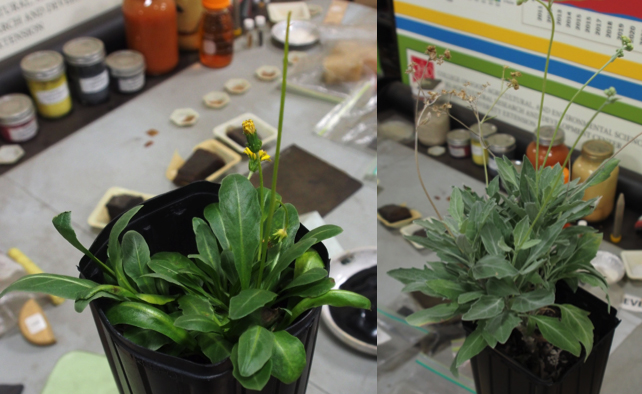
Friday began with a visit to the wheat fields with Dr. Clay Sneller who discussed how he uses genomic selection in the wheat breeding program.

Down the road we met Dr. Eric Stockinger, of The Stockinger Lab, for a walk through the fields where his lab is investigating the genetic basis for vernalization and cold tolerance in barley; their goal is to develop winter hardy two row barley cultivars for malting.
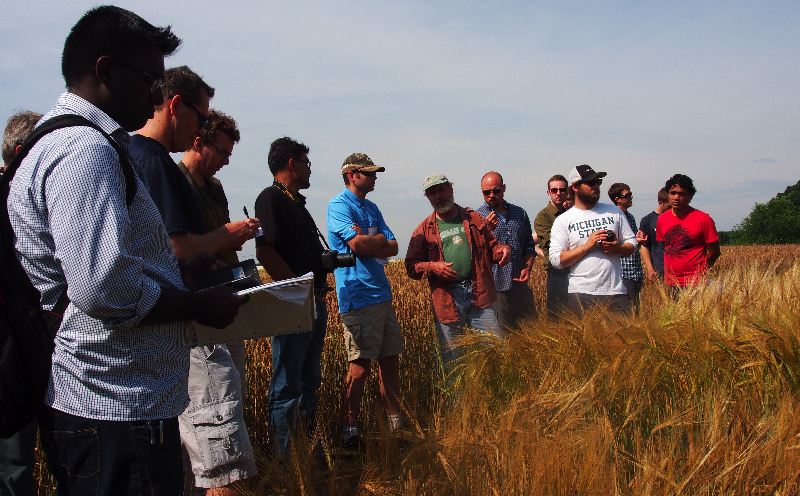
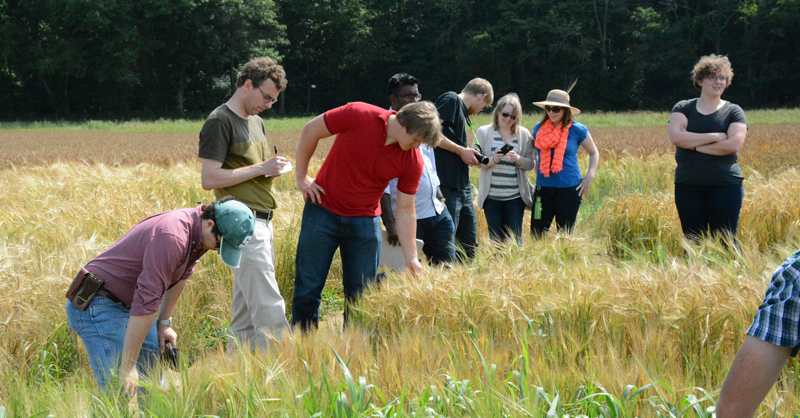
The last presentation was delivered by Dr. Diane Miller in the field where she is doing participatory breeding of apple cultivars for Ohio and Midwest states with The Midwest Apple Improvement Association. The concluding presentation from Dr. Miller brought us to a small trial of 5 hops cultivars, an appropriate end after our visit to the malting barley fields.
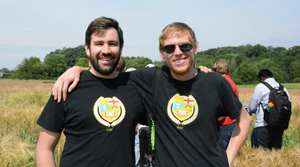 The conference provided opportunities for students and professors to share knowledge, generate discussions, and become more familiar with each other. I want to convey great appreciation from all of the student participants for the opportunity to participate in the GLPBI, for the funding provided by our supervisors, to Dr. Rajcan for arranging and facilitating our trip to OSU, and to Drs. Lukens and Navabi for their mentorship and support, and to the drivers who got us there and back safely. Thank you to our hosts, Dr. Clay Sneller and all of the faculty and students who warmly received us and delivered an outstanding program of OSU’s plant breeding and molecular genetics research.
The conference provided opportunities for students and professors to share knowledge, generate discussions, and become more familiar with each other. I want to convey great appreciation from all of the student participants for the opportunity to participate in the GLPBI, for the funding provided by our supervisors, to Dr. Rajcan for arranging and facilitating our trip to OSU, and to Drs. Lukens and Navabi for their mentorship and support, and to the drivers who got us there and back safely. Thank you to our hosts, Dr. Clay Sneller and all of the faculty and students who warmly received us and delivered an outstanding program of OSU’s plant breeding and molecular genetics research.
Next year’s GLPBI conference will be hosted by the Plant Agriculture Department at U of G.
